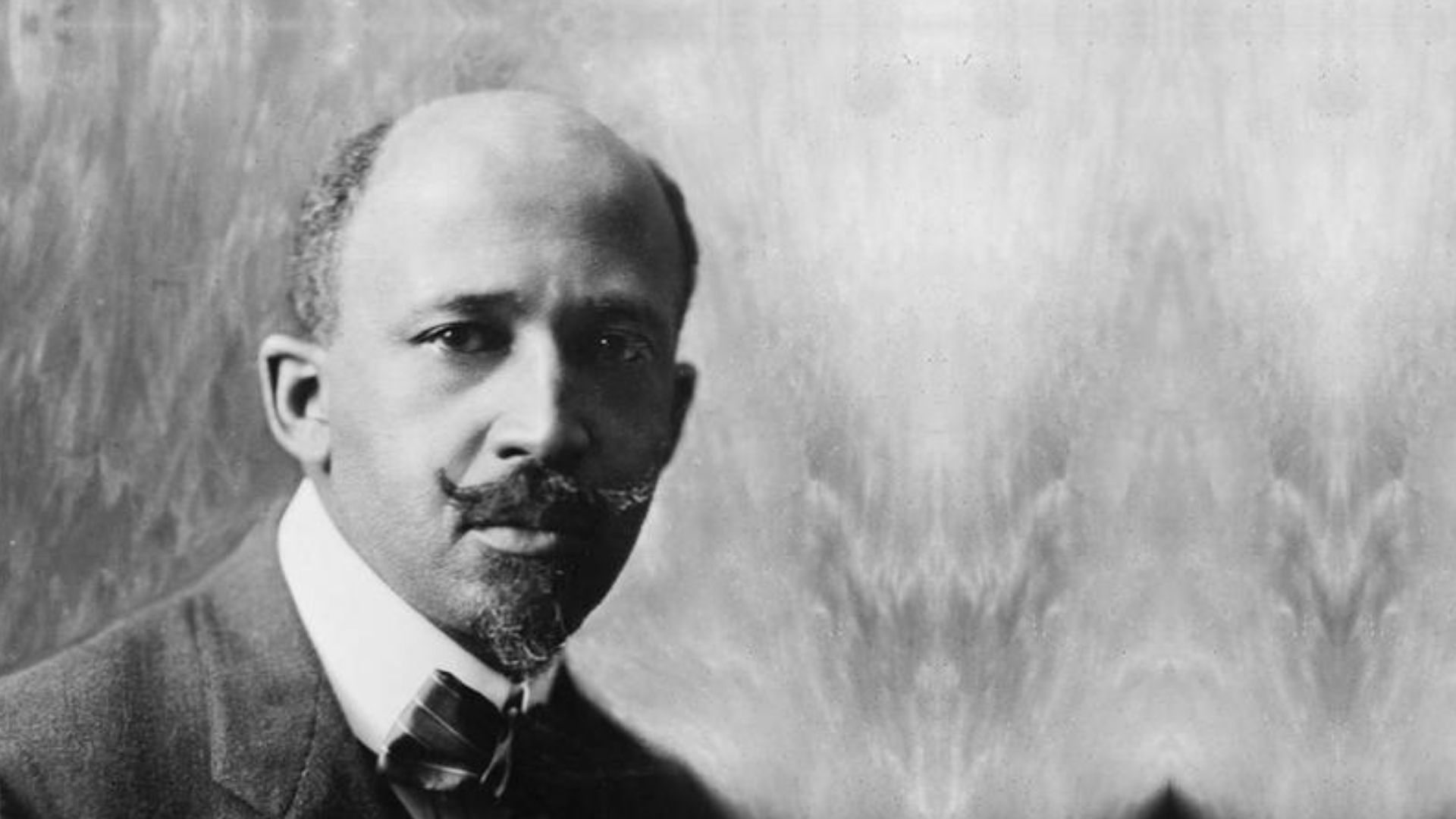William Edward Burghardt Du Bois
William Edward Burghardt Du Bois Poems
My country tis of thee,
Late land of slavery,
Of thee I sing.
Land where my father's pride
...
I am the Smoke King
I am black!
I am swinging in the sky,
I am wringing worlds awry;
...
William Edward Burghardt Du Bois Biography
William Edward Burghardt "W. E. B." Du Bois (pronounced /duːˈbɔɪz/ doo-BOYZ; February 23, 1868 – August 27, 1963) was an American sociologist, historian, civil rights activist, Pan-Africanist, author and editor. Born in Great Barrington, Massachusetts, Du Bois grew up in a relatively tolerant and integrated community. After graduating from Harvard, where he was the first African American to earn a doctorate, he became a professor of history, sociology and economics at Atlanta University. Du Bois was one of the co-founders of the National Association for the Advancement of Colored People (NAACP) in 1909. Du Bois rose to national prominence as the leader of the Niagara Movement, a group of African-American activists who wanted equal rights for blacks. Du Bois and his supporters opposed the Atlanta Compromise, an agreement crafted by Booker T. Washington which provided that Southern blacks would work and submit to white political rule, while Southern whites guaranteed that blacks would receive basic educational and economic opportunities. Instead, Du Bois insisted on full civil rights and increased political representation, which he believed would be brought about by the African-American intellectual elite. He referred to this group as the talented tenth and believed that African Americans needed the chances for advanced education to develop its leadership. Racism was the main target of Du Bois's polemics, and he strongly protested against lynching, Jim Crow laws, and discrimination in education and employment. His cause included colored persons everywhere, particularly Africans and Asians in their struggles against colonialism and imperialism. He was a proponent of Pan-Africanism and helped organize several Pan-African Congresses to free African colonies from European powers. Du Bois made several trips to Europe, Africa and Asia. After World War I, he surveyed the experiences of American black soldiers in France and documented widespread bigotry in the United States military. Du Bois was a prolific author. His collection of essays, The Souls of Black Folk, was a seminal work in African-American literature; and his 1935 magnum opus Black Reconstruction in America challenged the prevailing orthodoxy that blacks were responsible for the failures of the Reconstruction era. He wrote the first scientific treatise in the field of sociology; and he published three autobiographies, each of which contains insightful essays on sociology, politics and history. In his role as editor of the NAACP's journal The Crisis, he published many influential pieces. Du Bois believed that capitalism was a primary cause of racism, and he was generally sympathetic to socialist causes throughout his life. He was an ardent peace activist and advocated nuclear disarmament. The United States' Civil Rights Act, embodying many of the reforms for which Du Bois had campaigned his entire life, was enacted a year after his death.)
The Best Poem Of William Edward Burghardt Du Bois
My Country 'Tis of Thee
Of course you have faced the dilemma: it is announced, they all smirk and rise. If they are ultra, they remove their hats and look ecstatic; then they look at you. What shall you do? Noblesse oblige; you cannot be boorish, or ungracious; and too, after all it is your country and you do love its ideals if not all of its realities. Now, then, I have thought of a way out: Arise, gracefully remove your hat, and tilt your head. Then sing as follows, powerfully and with deep unction. They'll hardly note the little changes and their feelings and your conscience will thus be saved:
My country tis of thee,
Late land of slavery,
Of thee I sing.
Land where my father's pride
Slept where my mother died,
From every mountain side
Let freedom ring!
My native country thee
Land of the slave set free,
Thy fame I love.
I love thy rocks and rills
And o'er thy hate which chills,
My heart with purpose thrills,
To rise above.
Let laments swell the breeze
And wring from all the trees
Sweet freedom's song.
Let laggard tongues awake,
Let all who hear partake,
Let Southern silence quake,
The sound prolong.
Our fathers' God to thee
Author of Liberty,
To thee we sing
Soon may our land be bright,
With Freedom's happy light
Protect us by Thy might,
Great God our King.
William Edward Burghardt Du Bois Comments
William Edward Burghardt Du Bois Quotes
There are certain books in the world which every searcher for truth must know: the Bible, the Critique of Pure Reason, the Origin of Species, and Karl Marx's Capital.
If there is anybody in this land who thoroughly believes that the meek shall inherit the earth they have not often let their presence be known.
To be a poor man is hard, but to be a poor race in a land of dollars is the very bottom of hardships.
We black men seem the sole oasis of simple faith and reverence in a dusty desert of dollars and smartness.
An American, a Negro ... two souls, two thoughts, two unreconciled strivings; two warring ideals in one dark body, whose dogged strength alone keeps it from being torn asunder.
The music of an unhappy people, of the children of disappointment; they tell of death and suffering and unvoiced longing toward a truer world, of misty wanderings and hidden ways.
